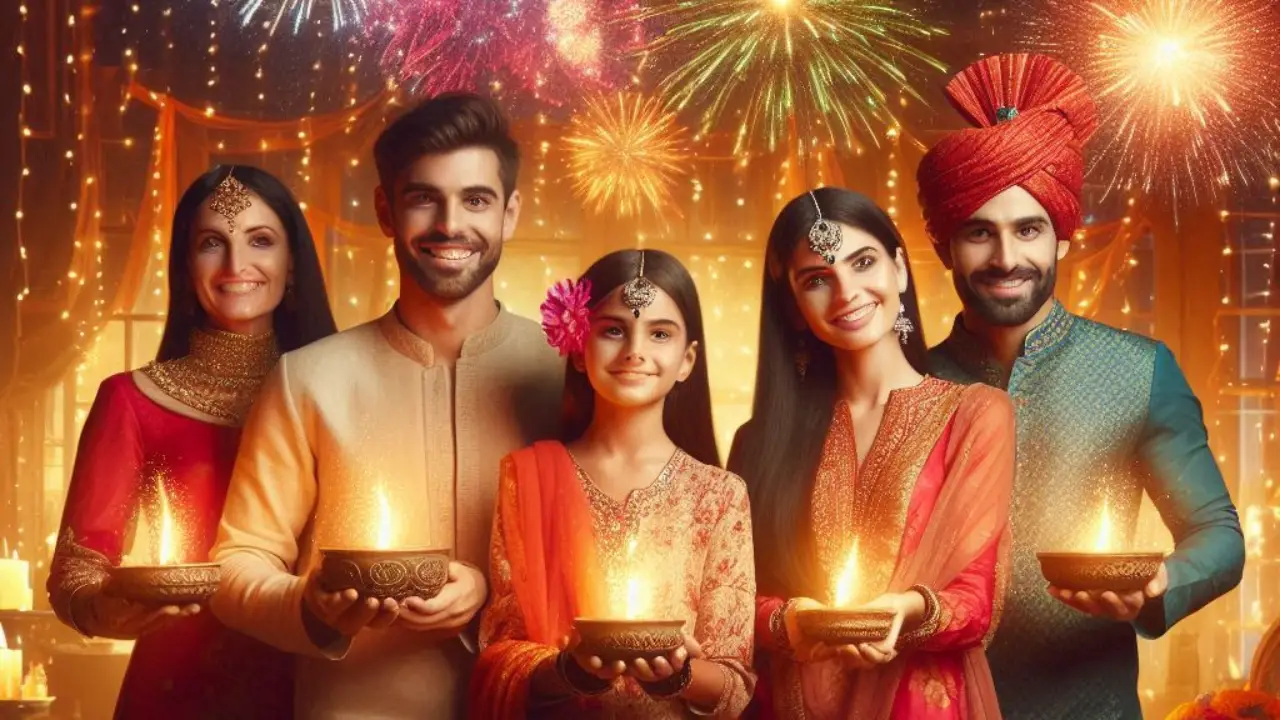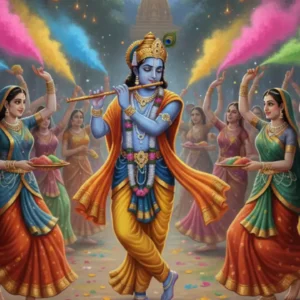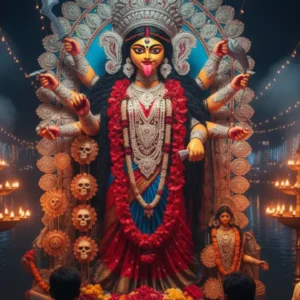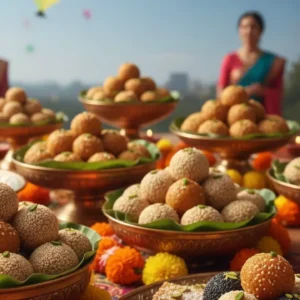The vibrant festival of Diwali, celebrated across the globe, illuminates not only homes but also hearts. This festival, rooted in ancient Hindu traditions, spans five days, each with its own significance. These days are not just about lighting lamps or exchanging sweets; they represent deep values of devotion, duty, and dharma (righteous living). Understanding the essence of each day helps us reconnect with these principles and embrace the true spirit of the five days of Diwali.
Day 1: Dhanteras – The Day of Prosperity and Health
The first of the five days of Diwali, known as Dhanteras, focuses on wealth and well-being. Traditionally, people clean their homes and purchase new items, especially gold or utensils, to invite prosperity. The term ‘Dhanteras’ comes from Dhan (wealth) and Teras (the thirteenth day of the lunar calendar), highlighting its association with financial stability.
Yet, the celebration isn’t solely about material wealth. The deeper meaning reflects health and longevity, honoring Dhanvantari, the god of Ayurveda, who emerged from the ocean with the nectar of immortality during the churning of the cosmic ocean. Many people also observe rituals for their health and well-being, offering prayers for physical and mental prosperity.
In many homes, families gather to recount stories about how true wealth lies in relationships, community, and the ability to share what we have. A friend of mine once shared how her family used Dhanteras as a time to donate to charities—underlining the importance of generosity over accumulation.
Day 2: Naraka Chaturdashi – Triumph Over Darkness
The second of the five days of Diwali, Naraka Chaturdashi, celebrates the victory of Lord Krishna over the demon Narakasura. It symbolizes the victory of light over darkness, both in the physical and spiritual sense. Traditionally, people wake up early, bathe in fragrant oils, and wear new clothes to signify purification and renewal.
This day offers a reminder to banish negativity from our lives. Just as Krishna triumphed over Narakasura, we are encouraged to conquer our internal demons—such as anger, greed, or fear. Rituals on this day, like lighting lamps or bursting crackers, symbolize driving away the dark forces.
Growing up, I remember how our neighbors would always invite us over for an early morning feast. It was their way of signifying a fresh start, leaving behind past grudges and beginning the new year on a harmonious note.
Day 3: Lakshmi Puja – The Day of Wealth and Blessings
The most significant and widely celebrated day of Diwali is Lakshmi Puja. Families prepare by cleaning their homes thoroughly, adorning them with rangoli designs, and lighting clay lamps to welcome Goddess Lakshmi, the deity of wealth and prosperity. On this night, prayers are offered to seek her blessings for the coming year.
Lakshmi Puja is a time for reflection on both material and spiritual abundance. It’s not just about receiving wealth but understanding the responsibility that comes with it. Ancient teachings remind us that wealth should be used to uplift society and promote dharma. Many families use this time to make donations, reinforcing the value of sharing blessings.
A close friend once recounted how her father, a small business owner, would always set aside a portion of his earnings for charity during Lakshmi Puja. He believed that true wealth is measured not by what you keep, but by what you give.
Day 4: Govardhan Puja – Duty and Reverence for Nature
Govardhan Puja, celebrated on the fourth of the five days of Diwali, marks Lord Krishna’s protection of the people of Vrindavan by lifting the Govardhan Hill to shelter them from torrential rains. This act signifies the importance of nature, community, and our duty towards the environment.
On this day, people create replicas of Govardhan Hill using cow dung and mud, which are then worshipped. This ritual acknowledges our dependence on nature and the duty to protect and respect the natural world. It’s a day to express gratitude for the harvest and the sustenance provided by the land.
A family friend of mine, who lives in a rural village, has always taken this day to educate younger generations about the importance of sustainable farming and respect for animals, particularly cows. They treat this day as a reminder of how interconnected we are with nature.
Day 5: Bhai Dooj – Celebrating the Sibling Bond
The final day of Diwali is Bhai Dooj, a day dedicated to the sacred bond between brothers and sisters. Similar to Raksha Bandhan, sisters pray for their brothers’ well-being and longevity, and brothers offer gifts in return. This ritual underscores the importance of family and the bonds that help us navigate life’s challenges.
On Bhai Dooj, families often come together to celebrate with feasts and traditional sweets. But more than the material exchanges, the day is about reaffirming the responsibility siblings have toward each other. It’s about mutual protection, love, and respect.
My own brother and I used to exchange heartfelt letters on this day, instead of the usual gifts. It became a tradition to write about our shared memories, highlighting our bond in ways that physical presents could never express.
Devotion, Duty, and Dharma: The Foundation of Diwali
The common thread throughout the five days of Diwali is the emphasis on dharma, or righteous living. Each day carries a deeper significance that teaches us about devotion to the divine (Lakshmi Puja), duty toward others (Bhai Dooj and Govardhan Puja), and the triumph of good over evil (Naraka Chaturdashi).
While the rituals and customs of Diwali vary from region to region, the essence remains the same. It’s a festival that encourages us to reflect on our actions, renew our commitments to dharma, and foster a sense of community and responsibility. The lights, sweets, and celebrations are merely reflections of the deeper values that Diwali represents.
What do the five days of Diwali mean to you beyond the celebrations? How do you integrate its teachings into your daily life? Share your thoughts, stories, or family traditions in the comments below. Let’s engage in a conversation that highlights how this beautiful festival continues to inspire devotion, duty, and dharma in all of us.





